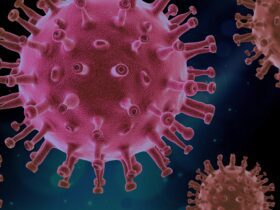According to research released Thursday, young infants with peanut allergies may overcome them if treated early enough.
A group of toddlers was given increasing quantities of peanut protein powder to develop their tolerance for peanuts.
After 2 1/2 years, almost three-quarters could handle the amount of 16 peanuts without becoming allergic.
Six months after the medication was terminated, one-fifth of the patients still had the same tolerance.
According to the findings published Thursday in the journal Lancet, the strategy seemed to perform best in the youngest children and those with milder allergies.
According to Dr. Stacie Jones, a research co-author from the University of Arkansas for Medical Services, the results show a “window of opportunity” early in life when therapy might have a long-term influence.
She did, however, say that additional study is required to assess how long the impact will last.
There is currently a therapy for peanut allergies. Still, it is only licensed for those over the age of four, and it only protects against accidental exposure to tiny quantities of peanuts.
Children are still advised to avoid eating nuts and carry an EpiPen or other allergy medication.
It also uses peanut powder, but the shielding is lost when youngsters stop taking the therapy.
Jones and her colleagues used a similar strategy on younger children to explore whether their immune systems might be altered if treated at a younger age.
She assisted in designing research for the current medication, ‘Aimmune Therapeutics.’
Peanut allergies affect around 2% of children in the United States, causing significant responses and bringing parents ongoing concern.
Some children grow out of the allergy, but the majority must avoid peanuts for the rest of their lives.
To avoid the development of allergies, medical experts have recently advised parents to start feeding peanut-containing foods to their newborns at a young age.
The Trials Went Really Well
The new government-funded research included 146 youngsters aged one to three in the United States.
They were given daily dosages of peanut powder blended in meals or an oat flour fake powder.
When the therapy was finished, 71% of individuals who received the peanut powder could stomach the equivalent of 16 peanuts.
Half of a year later, 21% could still do so.
Most of the youngsters had a mild to moderate response during therapy.
Some members of the peanut group needed EpiPen therapy.
Dr. Joyce Hsu, an allergy expert at Brigham and Women’s Hospital in Boston who was not involved in the study, said the data indeed confirms something that we suspected for long in this matter, that when children are young, their immune systems are more pliable.
Other allergy specialists highlighted the broad availability of the peanut powder used in the trial.
According to them, the therapy is a suitable option that is ready for real-world application but only under the supervision of an allergy expert.
According to Dr. John Kelso, an allergy expert at Scripps Clinic in San Diego, the results should give clinicians greater confidence to attempt the therapy on children and recommend it to parents.
However, he highlighted that it is still unclear if tolerance limits or how it may evolve.
“There still needs to be some caution about thinking of this as a cure,” he added.











Leave a Reply